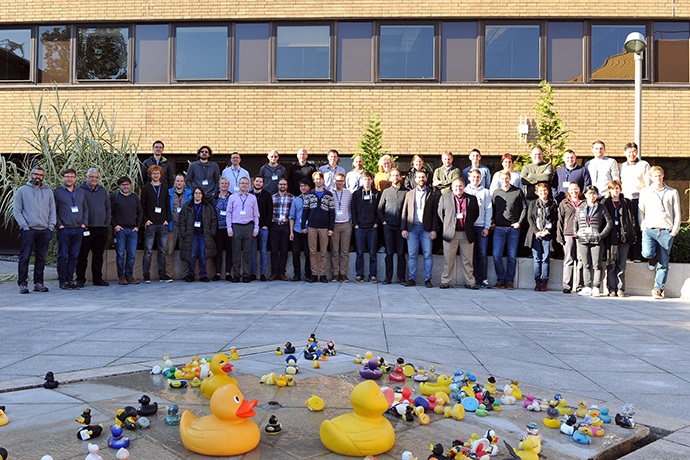Python has become increasingly popular in processing environmental data, including the handling of weather forecast, climate and oceanographic data. In recent years the Python eco-system has greatly improved its handling of large multi-dimensional data with the development of pandas, xarray, dask and links to machine learning frameworks. Jupyter notebooks are now a popular interface for scientists to exchange their work in Python. The continuing challenge is to apply these technologies with new sources of big earth science data sets, such as the Copernicus Climate Data Store.
After the success of last year's workshop, ECMWF invited developers of Python frameworks in the field of environment data to another two day workshop. The workshop assessed the current status of Python packages around the world through presentations of developments. Participants were able to join discussions on how interoperability between different packages can be achieved and how efforts between different developments can be harmonised.
